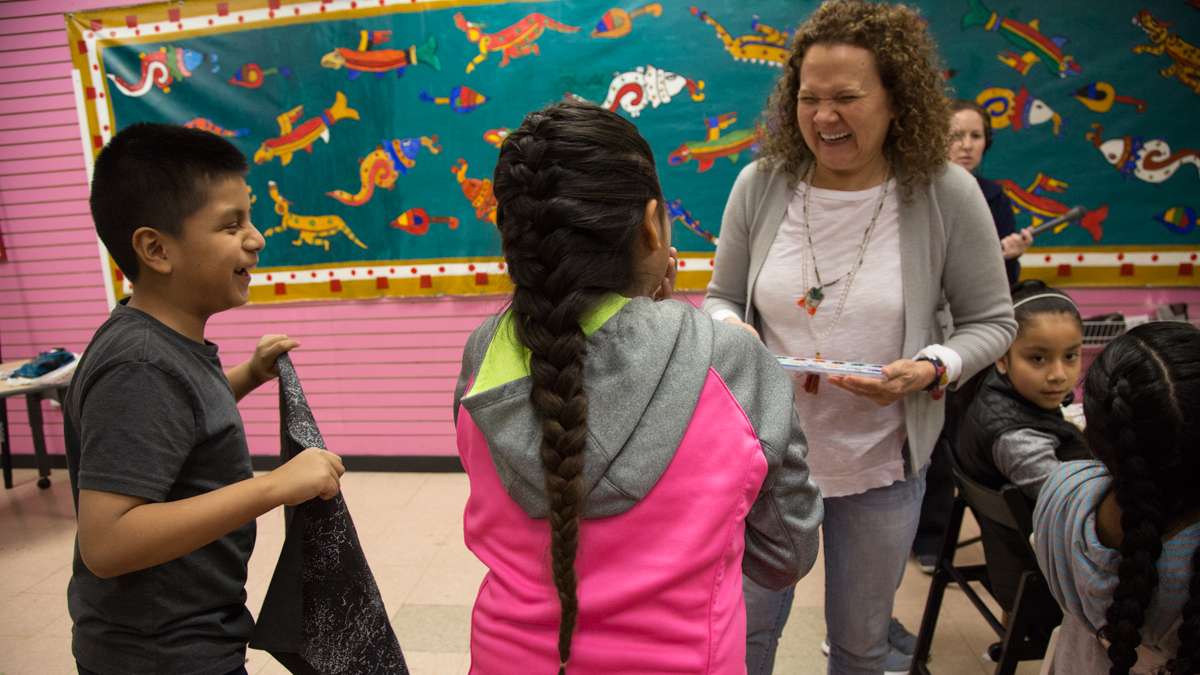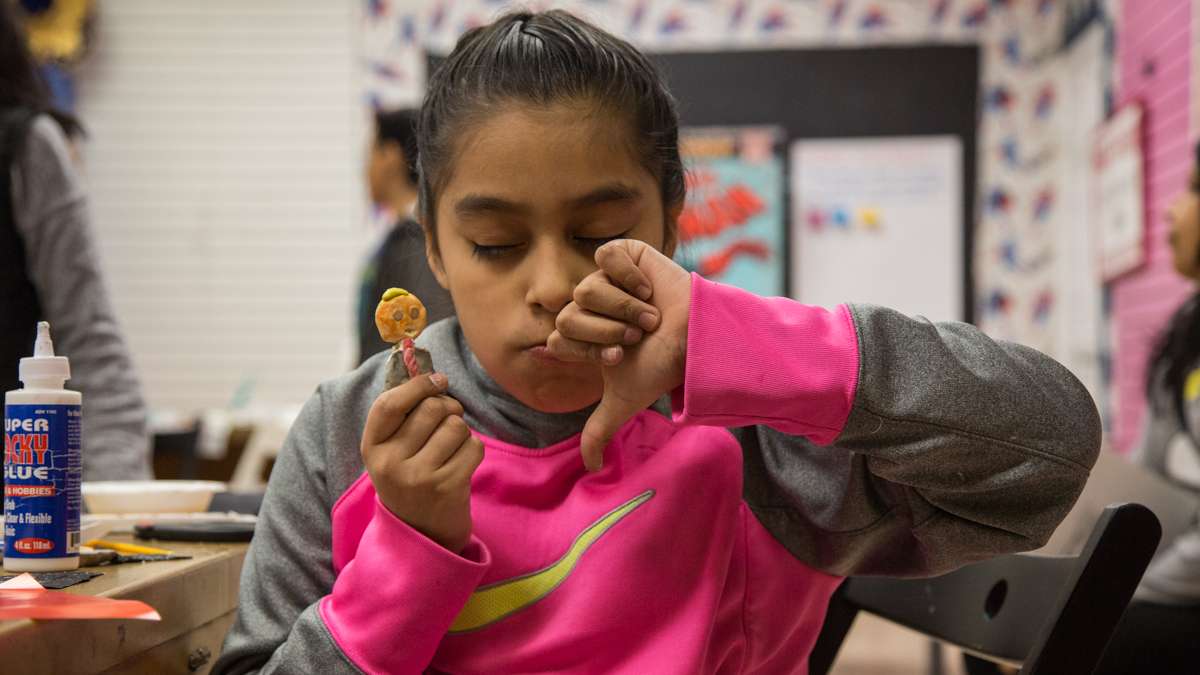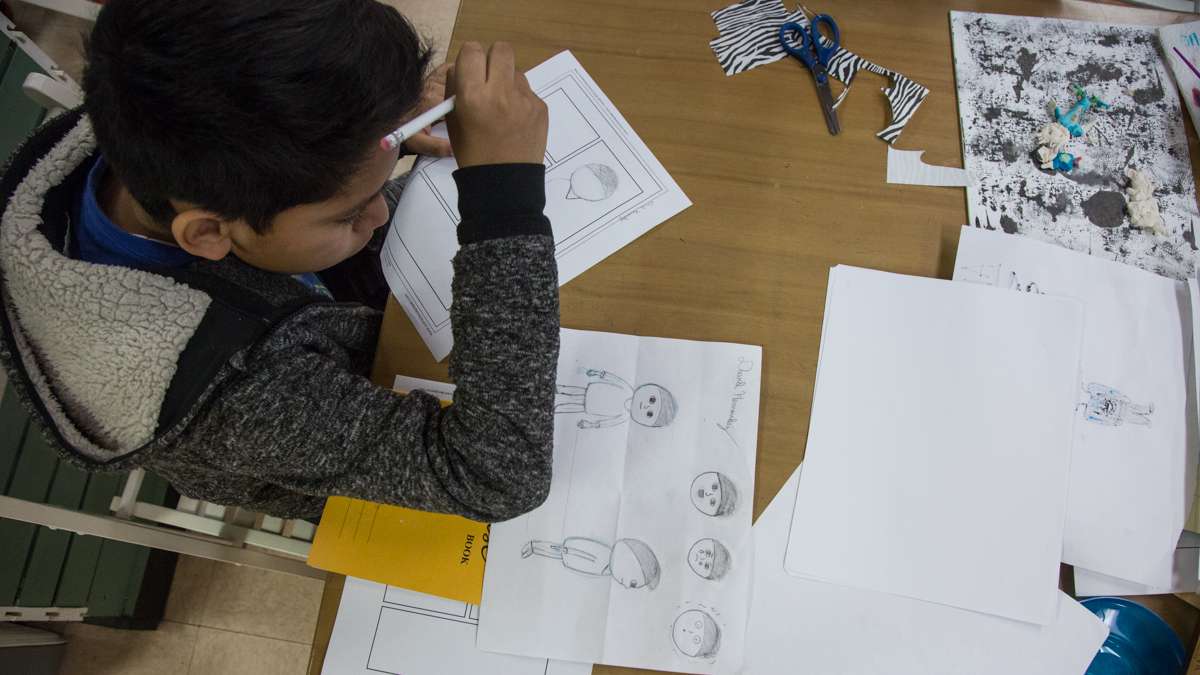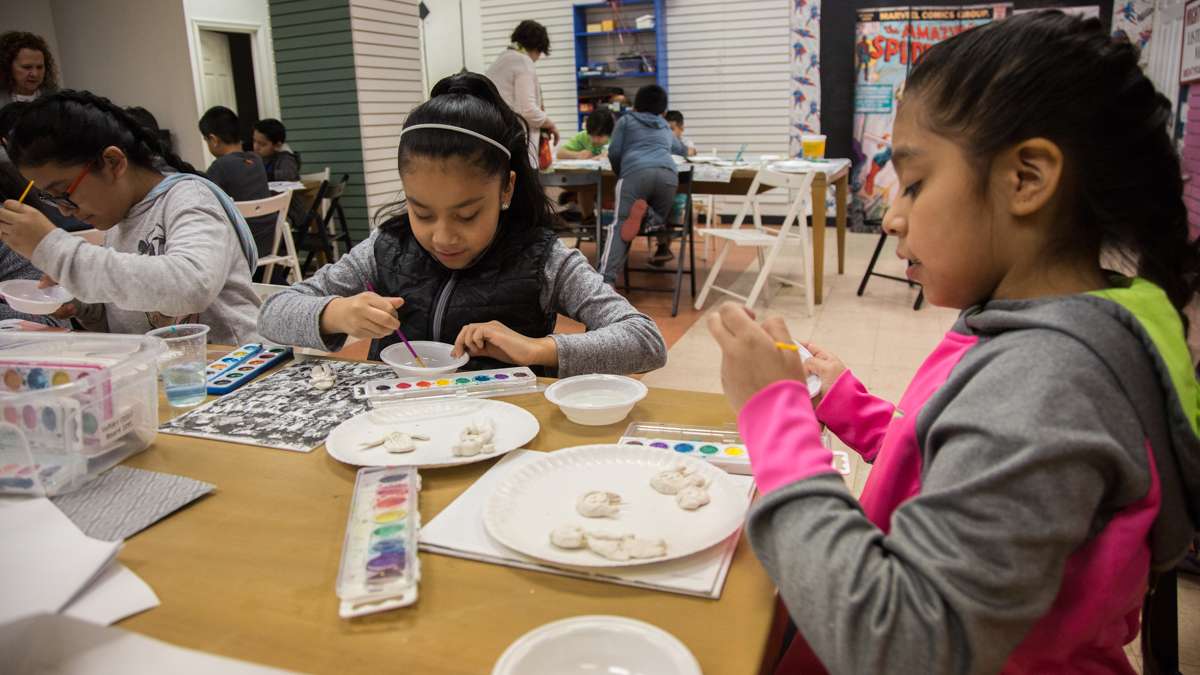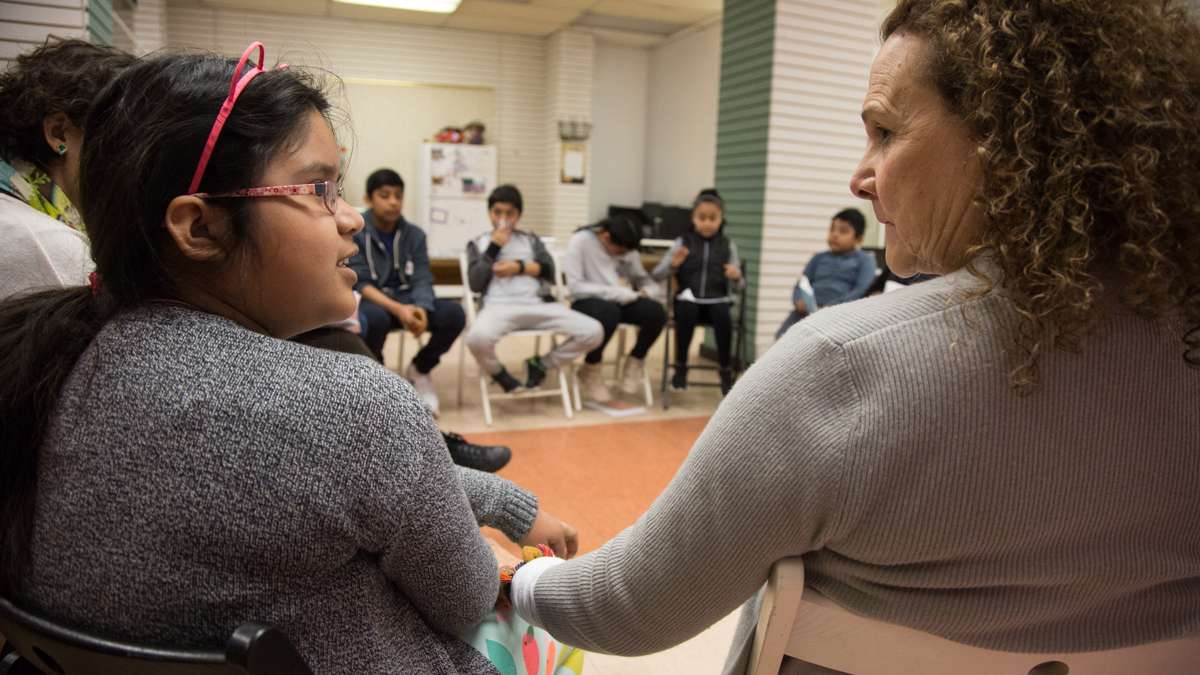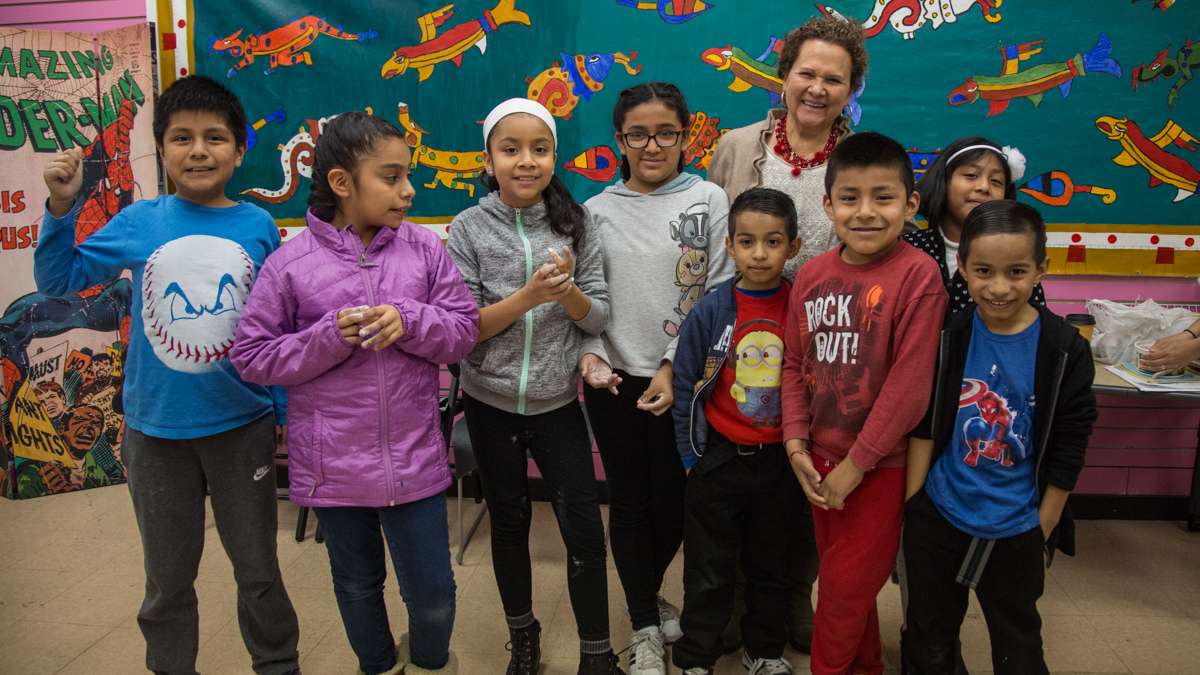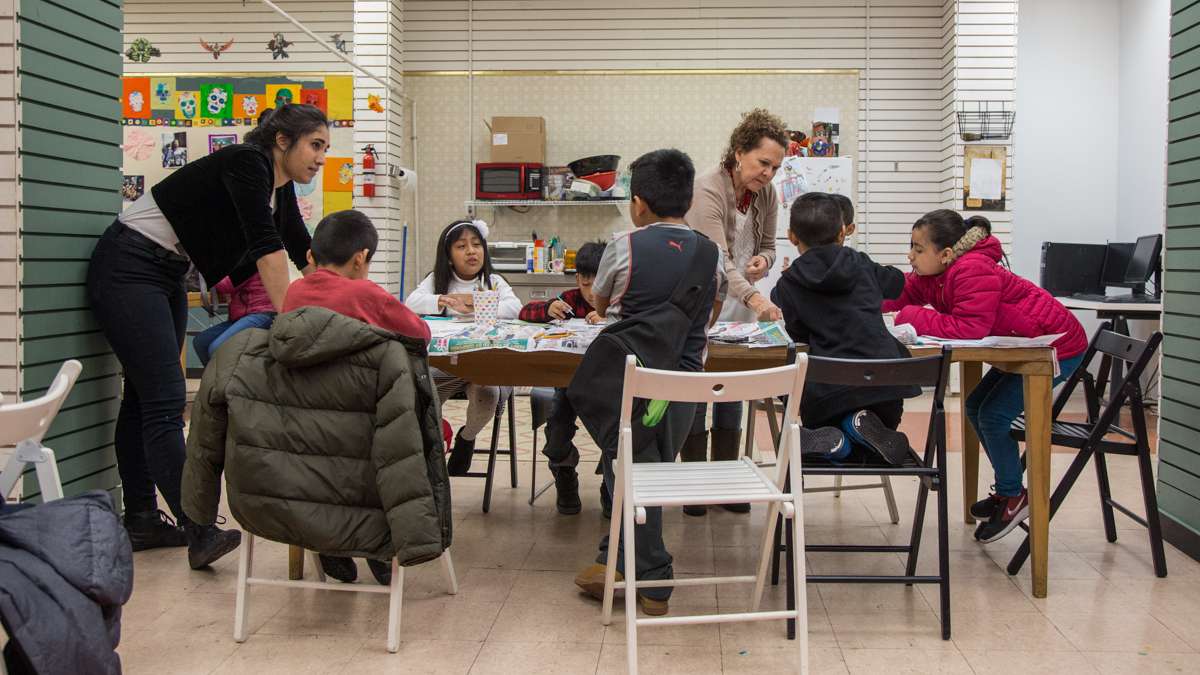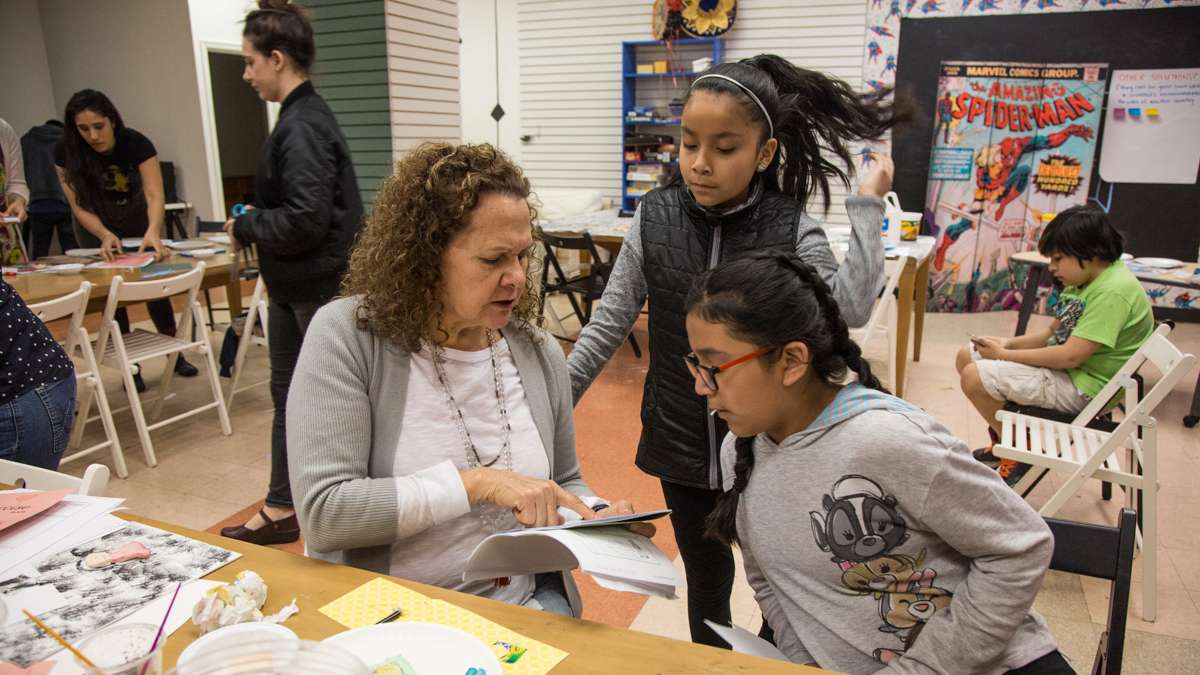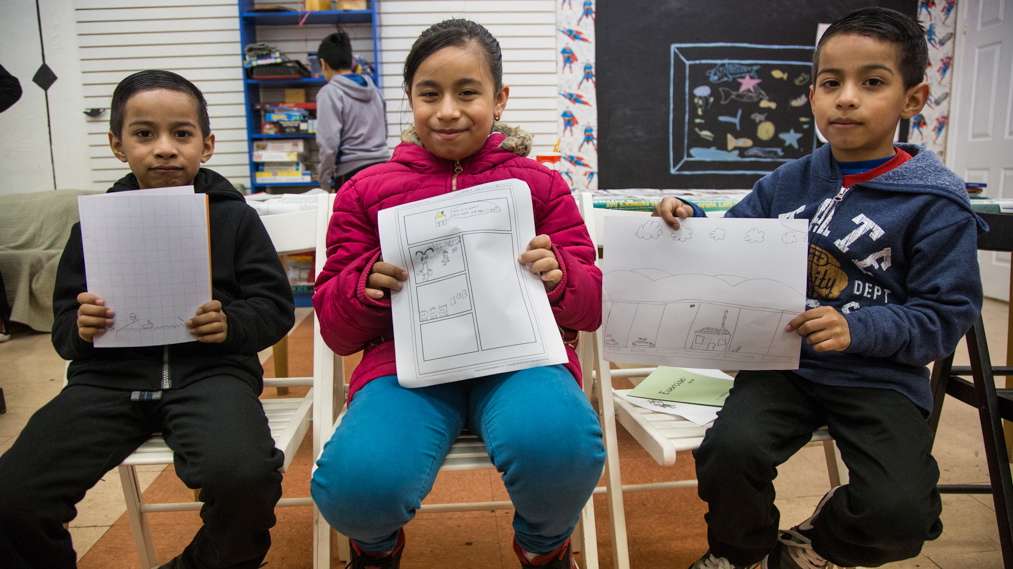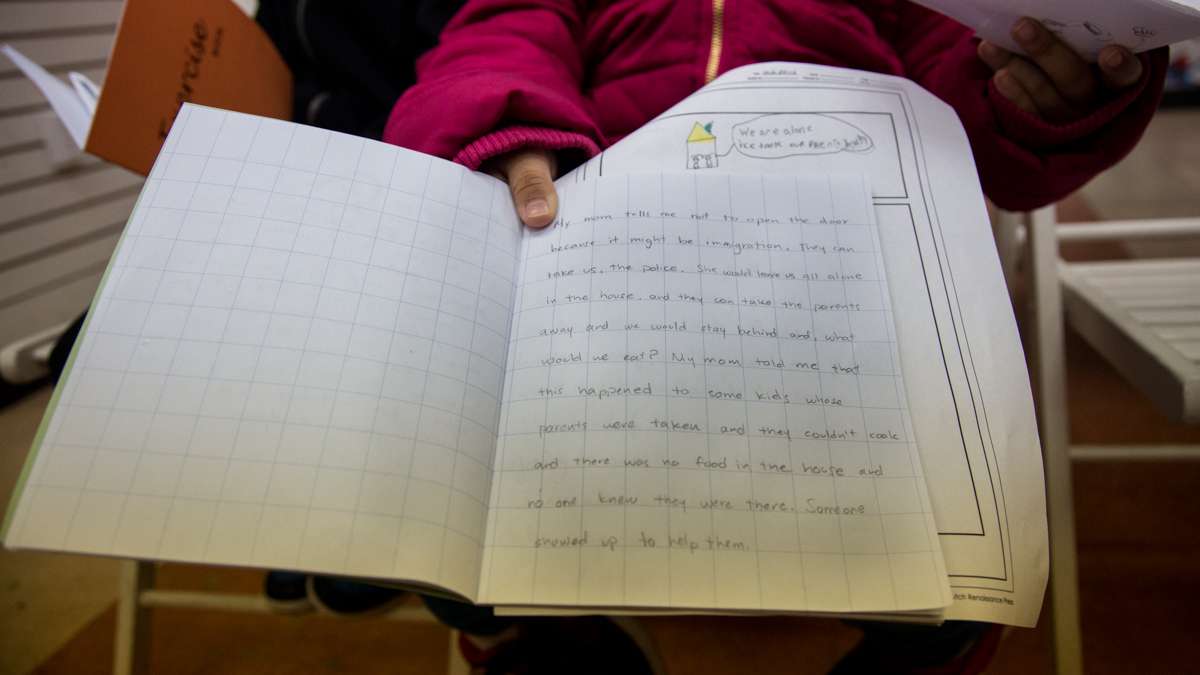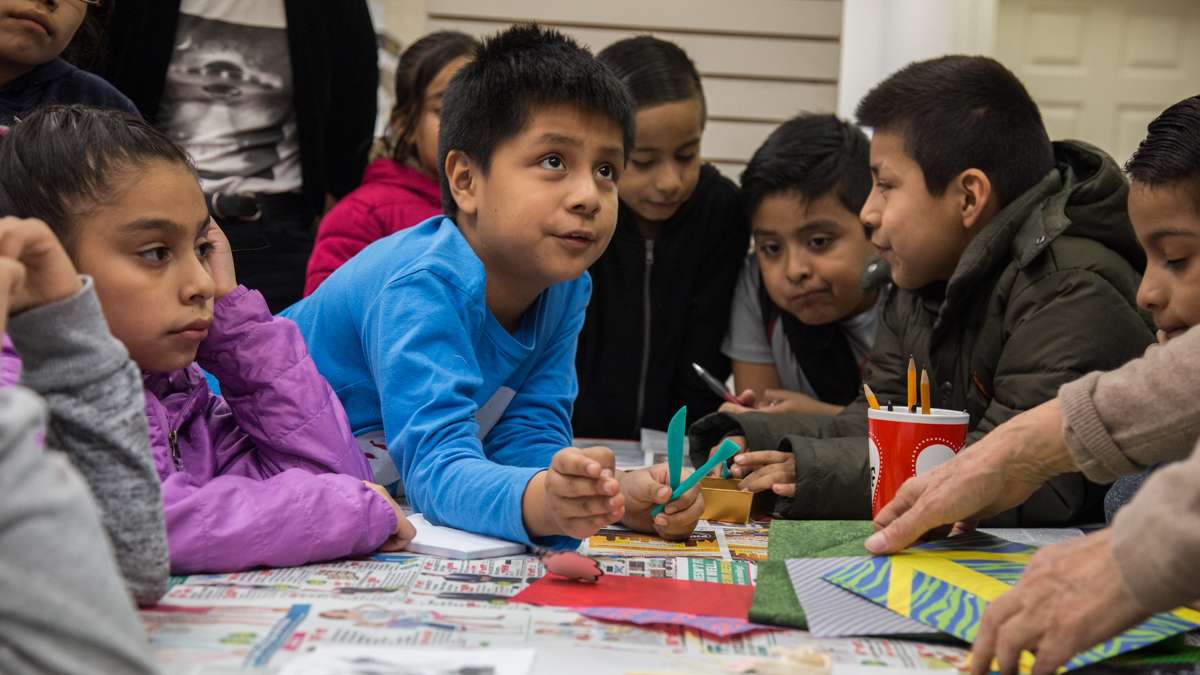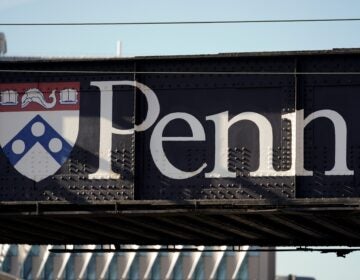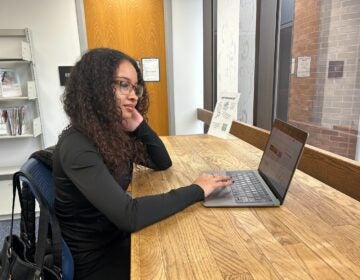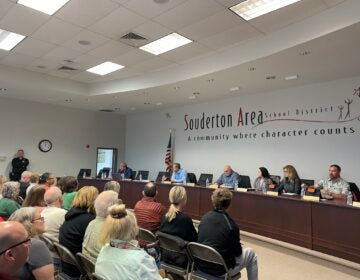Immigrant children are using comic books to express their fears of deportation [photos]
ListenComic books gave rise to Superman and Wonder Woman — and are now giving voice to kids telling their own stories about immigration.
The local group Mighty Writers is helping Philadelphia Latino children create comics to express what it’s like to live while fearing a family member will be deported.
Students surround the tables at the Mighty Writers El Futuro location in South Philly. The tables are covered with paint sets, piles of colored paper, and thought bubbles to help the kids decorate their comic strips.
In some comics, President Donald Trump plays the fool who trips down the stairs. In another, he’s confronted by bears who want him to appreciate nature and discourage a border wall — and turn the president into a cornstalk.
But the majority of the stories kids tell are of U.S. Immigration and Customs Enforcement taking away their parents.
Twelve-year-old Alan — we’re using first names only to avoid identifying families subject to deportation — is painting a clay character that will go with his comic strip, and cutting out background paper.
Alan said he enrolled because he wanted to know what to do in case ICE comes and takes his family, even though the classes really are not about that.
“Before coming here, taking the classes, I was very scared,” he said. “I would usually dream about it. And I would, like, wake up very scared, go into my mom’s room and seeing if she’s fine. I’m mostly worried about my family being separated, because I’ve experienced that, like, three times or two.”
Alan said since he’s been coming to the workshop, he’s stopped having those nightmares, especially about his mom and baby sister who’ll be born next month.
“When I came here, [workshop leader] Nora [Litz] told us to draw what we feel and what we think,” the sixth-grader said. “I drew and wrote what I think. And I don’t know how many weeks we’ve been here so far, but those weeks I’ve, like, forgot about everything and just lived my normal life.”
Alan is a U.S. citizen, but his parents are in the country illegally. He reads part of his comic:
“I’m scared that if I’m at school, when I come back home, back from school, I wouldn’t find my parents or my uncle in my house. And my house would empty. I’m afraid my dog wouldn’t be there.”
‘We’re together in this’
Workshop leader Nora Litz is a Mexican-American activist and artist who’s been working with Philadelphia’s Latino community for nearly a decade.
A naturalized citizen, she started the workshops to give kids a voice. Each class starts by listening to what the kids are feeling and what they’ve heard and witnessed. She said it gives them permission to talk about culturally taboo subjects.
“You’re not supposed to say a lot of things. That’s part of also the Latino community,” Litz said. “You don’t talk about things that hurt or stuff like that. But also they make friends with each other when they recognize, ‘Oh, we’re together in this.'”
Two of Alan’s cousins are also taking the class — sisters Lesley and Amy, both born in the United States.
Leslie, 14, is taking the class “because I wanted to tell the story about how everybody suffers through a big change in their life, especially right now where families are getting separated. And I wanted to share it.”
Both wrote stories about ICE taking away their parents. Leslie’s worried about protecting her younger siblings.
“I don’t want us to get separated, because it happened once and I don’t want it to happen again,” the eighth-grader said. “Happened to somebody else in the family who lived with us, and I experienced it when I was little, and I don’t want my little brothers and sisters to experience it.”
Little sister Amy, 10, also writes about her siblings:
“If they take away me and my brother, they might separate all of us, and we might never see us again. My little brother will be so scared. I would be worried for my little brother and my sister. They might give my brother to another family and me too.”
Amy said when she shares her story, there’s a sense of relief.
A culture of fear
Litz said she was already planning a workshop that dealt with immigration, but the policies of Donald Trump made it more urgent.
“I mean this is an emergency. That you really need to be right there at the front with the kids and put your face in there and say like, ‘OK, we can deal with this.'”
Litz said the kids share things that they probably wouldn’t otherwise, and their concerns are often heartbreaking.
“What they’re telling you, of how worried they are, and how worried they are for each other,” Litz said, “and just making sure who’s here, just the same as their houses, when they go, like, ‘Is my mom OK?’ And they come here and it’s like, ‘Who’s still here?’ It’s just awful.”
One of the moms with a kid in the class, Margarita, is from Puebla, Mexico. She has been living in the U.S. illegally for 16 years. She signed her daughter up for the workshop because she wouldn’t even say Trump’s name.
Margarita said her daughter seems less afraid now.
She said she never felt vulnerable until Trump became president.
“I think one of the things that affects me the most is the fear that he has instilled in us,” Margarita said through a translator. “He’s taking away that peace, you know that comfortability that we used to feel living here. So that’s what disturbs me the most.”
Several parents spoke about the culture of fear that’s descended upon their community, including the canceling of festivals, like Cinco de Mayo, out of fear of arrests happening instead of celebrations.
Many of the kids are consumed with thoughts of separation from their families, but for a few hours a week they imagine a different ending. In their comics, after their parents are taken, they all reunite.
An exhibit this summer will display the students’ finished pieces, and the comics will be bound into a book.
WHYY is your source for fact-based, in-depth journalism and information. As a nonprofit organization, we rely on financial support from readers like you. Please give today.


